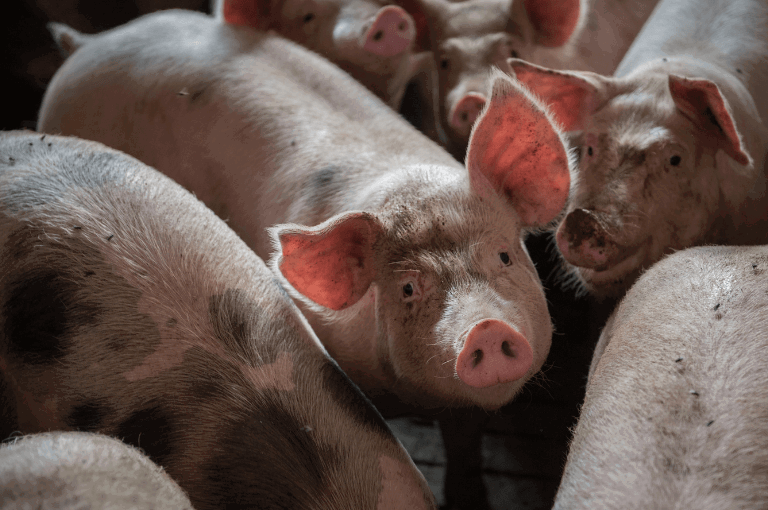It’s a pretty simple question: Why eat more plants? Well, there are many ways to answer it—and a whole host of reasons why eating more plants is better for animals, people, and the planet. Here are a few we find the most compelling:
It’s better for animals.
- Factory farming is the largest source of animal cruelty on the planet—over 60 billion land animals are farmed for food each year around the globe. This number includes more than nine billion chickens in the US alone, who suffer from unhealthy genetics that hinder their ability to move, cause them chronic pain, and lead to heart failure.
- Animals on factory farms live in overcrowded conditions where rampant disease can spread, there is minimal to no exposure to natural light, and they have no access to the outdoors. For example, USDA data shows that approximately 75% of the egg-laying hens in the US are forced to live in crowded cages with less than an iPad’s worth of space to move.
- Close confinement means that natural disasters hit hard—the congested conditions make it impossible to evacuate these animals in emergent, severe weather, and the concentrated chemicals and animal waste spell catastrophe for surrounding communities.
It’s better for people.
- Well-rounded, plant-based diets are better for your body, and are known to reduce the overall risk of some of the world’s most deadly and prevalent diseases, including heart disease, Type II diabetes, and cancer.
- Factory farms pollute and poison the health and economic well-being of the predominantly Black, Indigenous, and rural poor communities that surround them. That water and air pollution result in: higher rates of infant mortality, miscarriage, and asthma; greater risk of death from infection, anemia, kidney disease, and tuberculosis; and reduced property values of generational homes that prevent relocation and keep families in poverty.
- Slaughterhouse workers experience among the highest rates of occupational injury and illness across all private sectors. In many cases, they are denied the opportunity to even use the restroom. Most of these workers are low-income, people of color—including many undocumented folks that are fearful of standing up for just labor conditions.
It’s better for the planet.
- Animal agriculture is responsible for an astounding 5% of global greenhouse gas emissions. By adopting a plant-based diet, individuals can decrease their greenhouse gas footprint up to 53%.
- The current American diet is destroying critical natural habitats and driving biodiversity loss—for very little gain. Livestock production takes up 77% of global farmland, but only produces 18% of calories consumed by humans each year.
- Agricultural runoff and manure discharge from factory farms saturate rivers and coastlines with harmful nutrients that promote toxic algal blooms. When that algae dies, it sucks up all the oxygen in the water, creating dead zones, suffocating aquatic wildlife, and scarring ecosystems. In 2017, the Gulf of Mexico dead zone was larger than New Jersey.
Any one of these nine reasons alone is enough to consider reducing the meat, dairy, and eggs on your plate! Whatever your motivation, know that your impact is significant and that it’ll take all of us to change the world.
Ready to get started? Sign up now to #EatPlantsForAChange!
